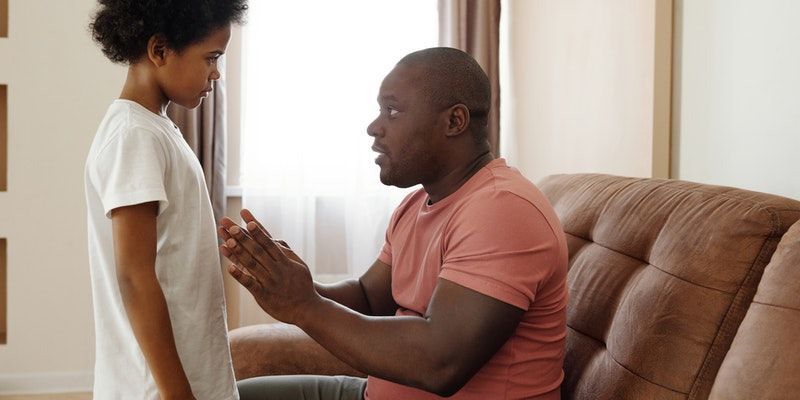How to Involve Children in Funeral Planning and Ceremony
Discover thoughtful ways to involve children in funeral planning and ceremonies, fostering healing and understanding through age-appropriate participation.

Including children in the funeral process can be a delicate yet profoundly meaningful experience. As families navigate loss, ensuring young members are part of the mourning and remembrance journey can promote healing, understanding, and emotional resilience. Many parents and guardians wonder whether children should attend funerals at all. While there is no one-size-fits-all answer, thoughtfully involving them—when done with sensitivity and clarity—can offer lasting benefits. This is especially important for families seeking compassionate and accommodating support from funeral homes in Avondale, PA.
Understanding the Emotional Needs of Children
Children process grief differently from adults. Their understanding of death varies depending on age, developmental stage, and prior exposure to loss. Toddlers may not comprehend the permanence of death, while older children might grapple with complex emotions, including sadness, fear, confusion, or even guilt.
Before involving a child in a funeral, it is crucial to assess their emotional readiness. Open communication is the foundation. Adults should gently explain what to expect during the ceremony—where it will take place, who will be there, what will be said or done, and what emotions may arise. Reassuring them that it is okay to cry, ask questions, or even feel uncertain can alleviate anxiety.
Ways to Include Children in the Planning Process
When deemed emotionally appropriate, involving children in planning aspects of the funeral can foster a sense of contribution and connection. Here are some meaningful ways to engage them:
1. Choosing Photos or Memorabilia
Invite children to select their favorite pictures or items that remind them of the deceased. These can be included in a photo display, memorial table, or video tribute. This act helps them reflect on cherished memories and feel that their bond with the loved one is being honored.
2. Crafting Personal Tributes
Children often express themselves best through art or writing. They might draw a picture, write a letter, or compose a short poem to be displayed or read during the service. This offers an outlet for their emotions while contributing something uniquely personal.
3. Participating in Ceremonial Acts
Depending on their comfort level and maturity, children might read a short passage, light a candle, place flowers, or help hand out memorial programs. These acts allow children to feel included while remaining within their emotional capabilities.
4. Creating Keepsakes
Making remembrance items, such as friendship bracelets or memory stones, provides a tactile way for children to express their feelings. These keepsakes can serve as comforting tokens during the grieving process.
5. Selecting Music or Readings
For older children or teens, inviting them to choose a meaningful song or reading allows them to contribute in a thoughtful, age-appropriate way. This kind of involvement can validate their emotional connection and sense of responsibility.
Preparing Children for the Ceremony
Attending a funeral can be overwhelming for a child. Preparation is essential. Walk them through the sequence of events in advance, including:
- What the venue looks like
- Who might be emotional
- What the casket or memorial area will look like
- How people typically behave (quiet reflection, prayer, eulogies, etc.)
Offer the child the choice to participate or observe quietly. Empowerment comes from having a sense of control during such a vulnerable time. Let them know that stepping out for a break is perfectly acceptable.
Providing Support During and After the Funeral
During the service, assign a trusted adult or family member to be available solely to support the child—someone who can answer questions, offer comfort, or take them outside if needed. After the ceremony, allow space for children to talk about their feelings. Encourage questions, share stories about the loved one, and validate their emotions.
Support does not end with the funeral. Grief is an ongoing process, and children may need continued reassurance and outlets for expression. School counselors, support groups, or family rituals of remembrance can all provide long-term emotional support.
Balancing Ritual with Sensitivity
While including children is valuable, it is equally important not to overwhelm them. Tailor their involvement based on personality, age, and emotional state. There is no pressure for them to do more than they are comfortable with. The goal is not perfection but presence, allowing them to engage in a way that nurtures their sense of belonging and helps them process loss.
Conclusion: Making Funeral Ceremonies Inclusive for All Generations
Funerals serve as a space for closure, community, and honoring a life lived. Involving children in these ceremonies—when approached thoughtfully—can nurture healing across generations. By creating opportunities for age-appropriate involvement, families can help children navigate their grief in meaningful ways. For those seeking guidance and care from compassionate professionals, funeral homes in Avondale, PA, provide the supportive environment necessary to accommodate every family member, including the youngest.
To learn more about planning inclusive and heartfelt memorial services, consider reaching out to Grieco Funeral Home & Crematory, Inc. Contact us today to learn more.











